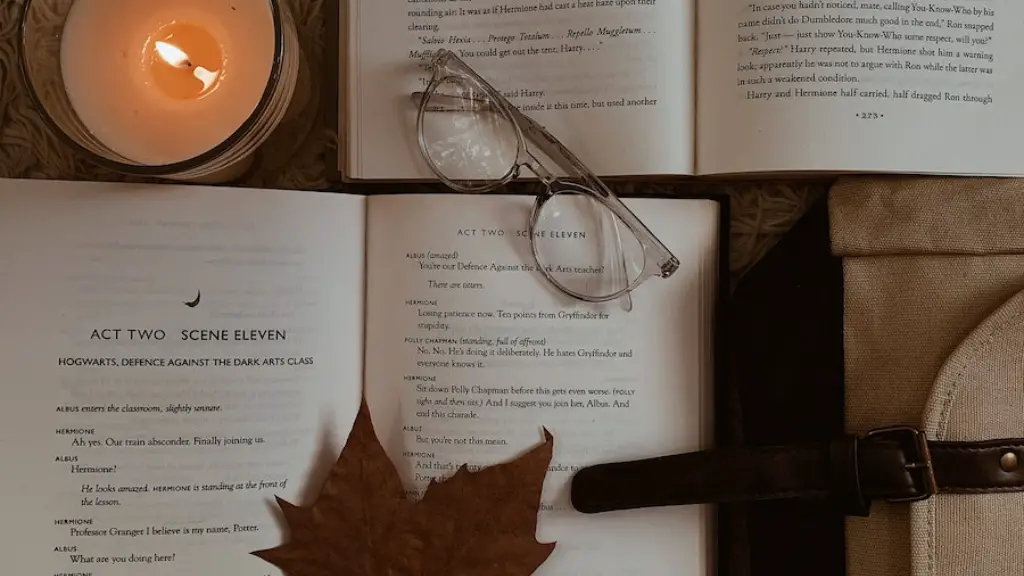Social Connection and Expressing Feelings
People have loved poetry for centuries, whether it be for its beautiful words and sound, its ability to be meaningful and show insight, or its use for describing, expressing, and understanding emotion. Poetry allows us to make a deep connection with other people, and provides us with a way to express ourselves. When we listen to or read poetry, we are sharing in an often profound and intimate encounter with the author and the sentiment expressed. We can relate to the emotion, and that is what helps draw us in.
Many believe that we are drawn to poetry because we can feel a sense of connection with the author and the words they are conveying. It allows us to make a deep connection with another individual, and creates a space where we can share our thoughts and feelings in a way that is often very real. By creating a safe space to express our feelings, poetry can be a powerful tool for personal growth.
Beauty of Poetry
The beauty of poetry lies in its ability to describe emotions or experiences in a way that is both vivid and moving. The lyrical nature of poetry allows it to go beyond the literal and deeply explore moments of joy and sorrow. As readers, we can relate to the feelings that the poetry is expressing, even if the experience is not our own.
One of the greatest advantages of poetry is its ability to evoke strong emotions in its readers. Through the use of colour, imagery, and sound, we are able to bring the words to life. The sound of the words in a sonnet or the vivid description of a scene in a free verse can create a powerful emotional response in the reader.
Rhythm and Creative Writing
Moreover, poetry allows for a freedom of expression and creativity. Whether it is a classic poem like Shakespeare’s sonnets or a modern spoken word piece, poetry provides a unique platform for individual expression. It is a healthy outlet for self-expression and allows us to explore our creative sides.
The rhythm and creative structure of poetry provide us with an enjoyable and stimulating experience. Our brains are stimulated when we encounter a new poem or lyrical structure, and it brings us pleasure to discover its hidden layers and discover its true meaning.
Education and Appreciation of Beauty
By exploring the nuances of different forms of poetry, readers can learn to appreciate its beauty and complexity. The structure, style, and structure of different types of poetry are what make poetry so special and unique. This can help us to appreciate the different forms of poetry in our lives, and to appreciate the beauty that lies in each form.
Moreover, reading and writing poetry can be educational. By studying different forms of poetry and their history, we can gain a deeper understanding of different cultures and the language they use. We are also able to gain a better understanding of the literature itself, and how it changes over time.
Connection with Nature and Religion
Poetry has a long-standing tradition with nature, and many poets have used it to explore and express their relationship to nature. This can be seen in Emily Dickinson’s poem, “A Narrow Fellow in the Grass,” and in Walt Whitman’s poem, “Leaves of Grass.”
In addition, many poets have used poetry to explore religious themes and beliefs. Poets like Dante, Whitman, and Wordsworth have all used poetry to explore themes of faith and spirituality. Poetry allows us to explore our personal beliefs and creative approaches to understanding the world around us.
Provides Relief and Comfort
Finally, poetry provides us with a great source of comfort and solace. By reading or writing poetry, we can explore our own emotions, experience moments of joy, and find peace in difficult times. The lyrical nature of poetry can provide an escape or distraction, when needed. Poetry can also help us to gain a greater understanding and appreciation of the world around us.
Overall, poetry provides us with an exciting and powerful way to express ourselves. Its ability to evoke strong emotions in its readers, explore different forms of creativity, and explore themes of nature and spiritualism make it one of the most beloved and powerful forms of literature.
Exploring Self Identity Through Poetry
Poetry can be used to explore our own identity, to challenge the ways in which we view ourselves and our place in the world. By reading and writing poetry, we can discover our own strengths and weaknesses, and learn to accept and embrace them.
Writing poetry can also be a great way to capture and express emotions that we may not normally be able to express. It allows us to explore feelings and experiences that we may not otherwise have words for. Through poetry, we can explore our fears, our hopes, and our dreams in a way that would not otherwise be available to us.
Reaching and Connecting with Others
Sharing our poetry with others can also be an incredibly powerful experience. By opening up and sharing our words and emotions, we can make meaningful connections with others who might otherwise be closed off. Poetry can be used to help us find common ground, to create understanding between people of different backgrounds.
Furthermore, by connecting with the poetry of other authors and cultures, we can gain a greater understanding and appreciation of different lifestyles, values, and worldviews. This helps us to develop empathy and to connect with others on a deeper level.
A Form of Therapy and Release
Finally, poetry can provide us with a form of therapy and release. Writing poetry can help us to process difficult emotions, and explore our feelings in a safe and creative manner. It is often easier to express ourselves through words than through other mediums, and many find that poetry allows them to express complex emotions in ways that sometimes cannot be done with words alone.
Poetry can provide us with an emotional release and can be a powerful tool for self-reflection and growth. It can help us to process and make sense of difficult events, as well as connect us to a larger community of like-minded individuals.


